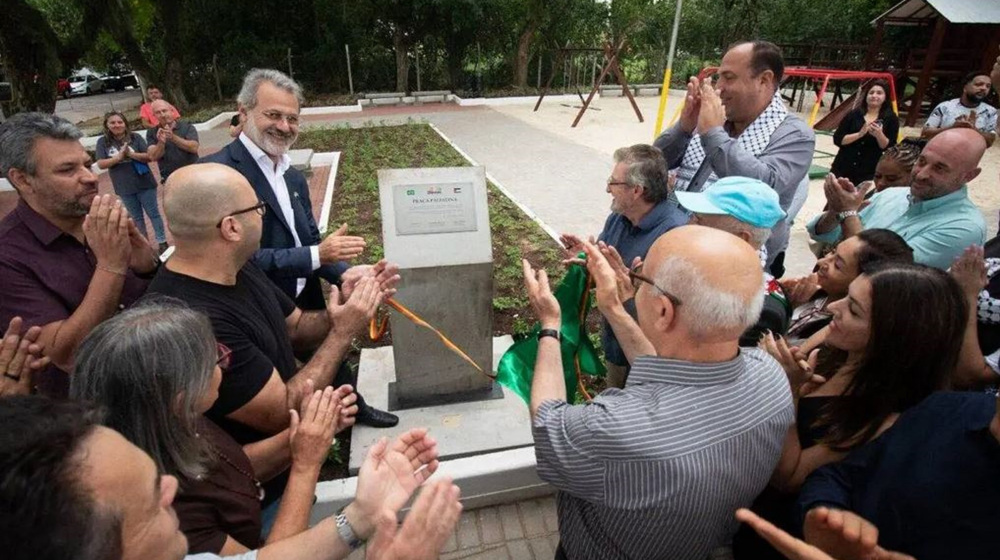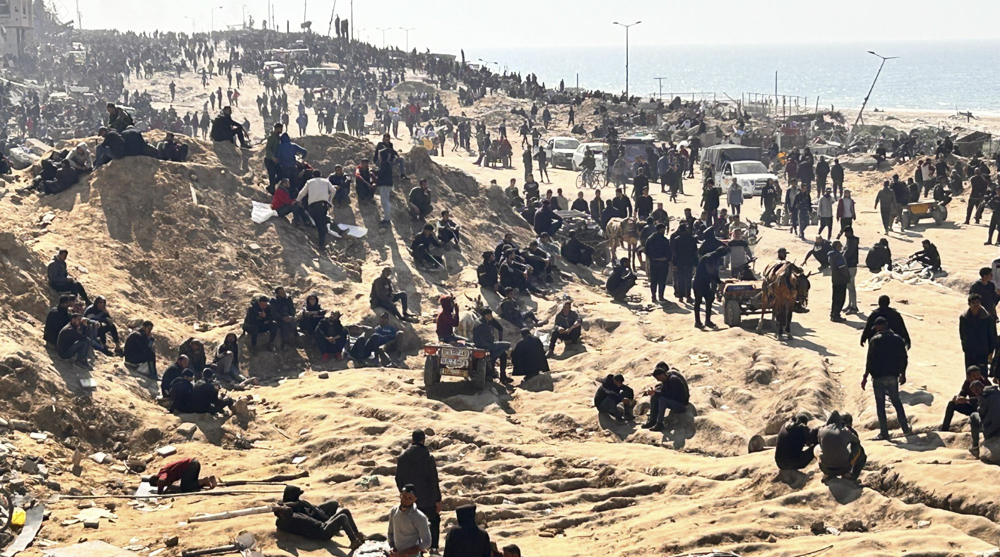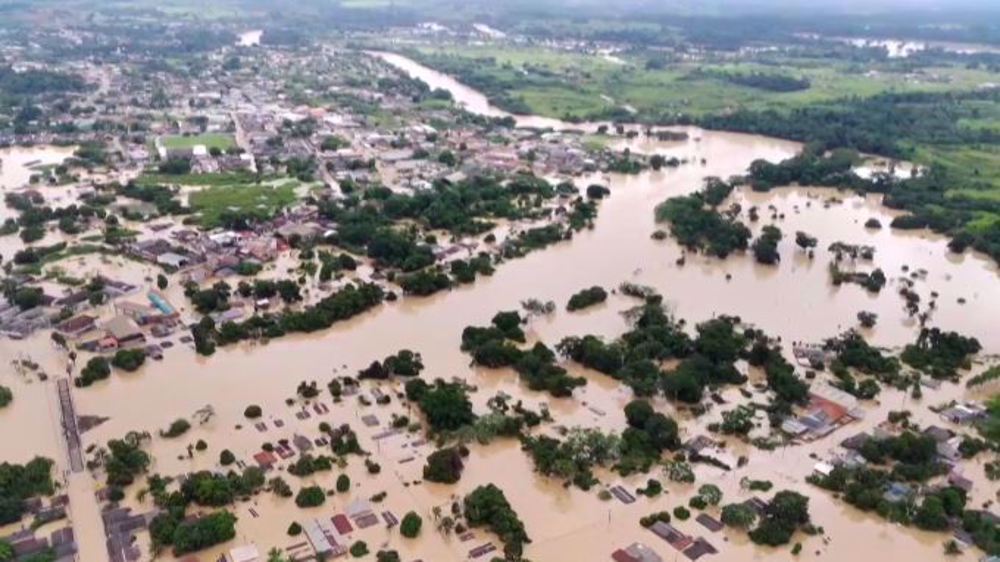Police fire tear gas at pro-Rousseff protesters in Sao Paulo
Clashes have erupted between Brazilian police and the protesters who took to the streets in Sao Paulo against the impeachment trial of suspended president Dilma Rousseff.
Riot police fired tear gas to disperse several thousands of demonstrators on the main Paulista Avenue in Sao Paulo late Monday.
Protesters, in turn, burned objects and used barriers to block the streets.
The Central Workers’ Union said at least 20,000 people had taken part in the protest, but the military police put the number at some 800 people.
Elsewhere, at least 2,000 demonstrators were out on the streets of the capital, Brasilia, and marched on the Senate headquarters, where the impeachment trial was underway.
They chanted slogans in support of Rousseff and called for Interim President Michel Temer to step down.
“Temer out! Dilma come back,” the protesters yelled.
Temer took over when the Senate voted in May to impeach and suspend Rousseff for breaking fiscal rules in her management of the 2014 federal budget. Rousseff denies wrongdoing.
During the 12-hour trial session on Monday, Rousseff denied the allegations and called the impeachment a coup d’état.
The embattled leader denounced Temer as a “usurper,” adding, “I know I will be judged, but my conscience is clear. I did not commit a crime.”

Rousseff impeachment: A timeline
October 2015: Brazil’s top finance court says Russeff’s government borrowed billions illegally to offset the 2014 budget shortfall. An investigation opens into the allegations.
December 2015: Brazil’s National Congress approves to open an impeachment against the president.
April 2016: The lower house of Congress overwhelmingly votes to send the impeachment motion to the upper house, known as the Senate.
April 2016: Rousseff rejects the allegations and accuses her opponents of launching a “coup d’etat” against her.
May 2016: The Senate votes in favor of her impeachment. She is suspended.
June 2016: A team of independent auditors concludes there is no evidence that Rousseff participated in budget manipulation.
August 2016: The Senate votes to hold a final impeachment trial for Rousseff as Olympics games are underway in the South American country.

The Senate will decide this week whether to reinstate Rousseff or remove her permanently. Rousseff’s removal requires a two-thirds majority of Senate votes.
If she is sacked, Temer will become the full-fledged president until the next presidential election in December 2018.
A top official of Brazil’s Workers’ Party, however, said it will call for new elections if the Senate votes ‘Yes’ to Rousseff’s ouster.
“There is no way the Brazilian people will go along with a government that was not elected,” said Miguel Rossetto.
Israeli airstrike kills at least 7 people in Rafah
VIDEO | Iranians hold nationwide demos in support of IRGC
Syria condemns US veto of Palestine UN membership resolution
Iraqi resistance forces hit Israeli Ovda air base
Hackers break into Israeli military’s computers, access trove of documents
Tulkarm Brigade commander killed by Israeli forces in raid on refugee camp
Zionist media desperately trying to turn Israeli defeat into victory: Iran
VIDEO | Press TV's news headlines













 This makes it easy to access the Press TV website
This makes it easy to access the Press TV website